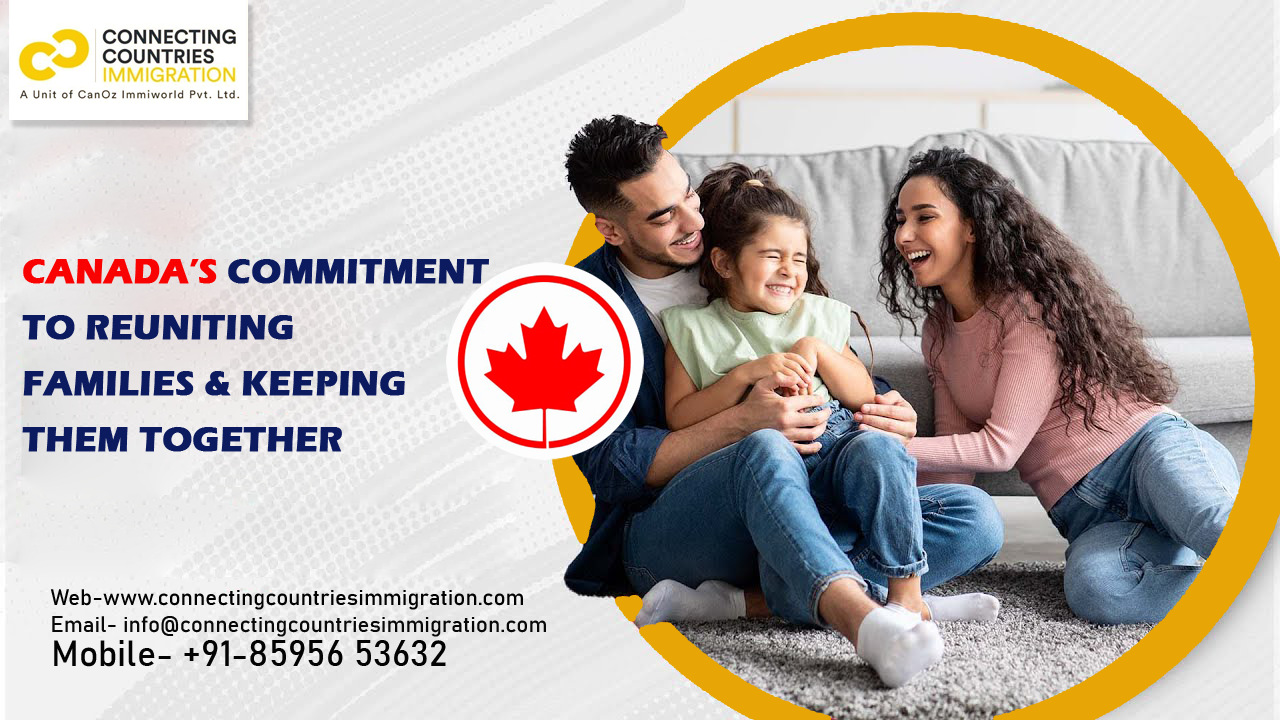Canada’s commitment to reuniting families and keeping them together
Canada has reaffirmed its commitment to keeping families together, which is key to the country's existing immigration system. Immigration, Refugees, and Citizenship Canada (IRCC) has implemented new procedures to expedite family reunion, ensuring that dependants and spouses who would not otherwise be eligible to travel to Canada now have a road to rejoin with their families. Former Immigration Minister Sean Fraser announced additional restrictions on May 26th, including:On the 26th of May, former Immigration Minister Sean Fraser announced additional measures, which include: 1) Expedited processing times for temporary residence visas (TRV) for spousal applicants, thanks to the introduction of new, specialized systems intended solely to process spousal TRV applications.2) The initiation of a new open work permit scheme for spousal and family class applicants; and3) Extending the eligibility for Open Work Permits (OWPs) to wives and family members of permanent residents, Canadian citizens, temporary workers, and students (currently in Canada).
Processing times have been shortened, and new tools have been introduced.
These new processing tools and methods are intended to improve efficiency, particularly in non-complex applications. These procedures have already had positive results, with 98% approval rate for spousal TRV applicants (including both spouses and dependents). Much of this efficiency can be attributed to IRCC's recent use of new analytics in application processing, which can employ a multi-factor analysis of applications to assist immigration officers in determining whether an applicant is likely to be qualified for Permanent Residence (PR).Officers can then place this application to a category where it is more likely to be granted (based on the applicant's eligibility), considerably reducing processing times.
New Open Work Permit for spousal and family class applicants
As of January 30th, this year, OWPs were made available for a limited time to spouses of individuals participating in the Temporary Foreign Worker Program (TFWP) and International Mobility Program (IMP). This initiative will last until 2025. The IRCC thinks that giving work permits to these workers' spouses, dependents, and common-law partners will assist alleviate some of their stress by increasing their financial security and encouraging family unity and inclusion into their communities. The campaign also includes working-age youth aged 16 and up among the principal candidates of all skill levels. According to IRCC estimates, this program will allow approximately 200,000 families of foreign workers to enter the Canadian workforce, contributing in alleviating the national labour deficit and supporting the economy.
Open Work Permit for Outland Applicants
On May 26th, IRCC also revealed an improved family sponsorship guideline for outland sponsorships.Spouses, partners, and dependents of permanent residents, Canadian citizens, temporary employees, and students (now in Canada) are now possibly eligible for an OWP under the new rules.
These family members include spouses, common-law partners, conjugal partners, and dependent children over the age of 18.Previously, OWPs were available to candidates through inland sponsorship or to persons who already had a TRV and lived in Canada. The modified proposal, on the other hand, allows applications from outside of Canada, generally known as outland sponsorship applications, to be reviewed, making these people eligible for OWPs.
Under this new approach, IRCC plans to process all spousal sponsorship applications within a 12-month timeframe. Family members who have a valid temporary resident status, who have maintained their status or who are eligible for and have applied to restore their status, and who share a residential address in Canada with their sponsor at the time of their OWP application may be eligible for a work permit. Officers can give OWPs to foreign nationals who meet one of two sets of qualifications, according to IRCC public policy. In one case, the foreign citizen may be a principle applicant who has filed for permanent residence in Canada under the spouse or common law partner category, or as a spouse, common-law, or conjugal partner under the family class category whose application has been accepted by IRCC.
How Connecting Countries Immigration can assist you?
We at Connecting Countries Immigration have successfully assisted thousands of people and their families in immigrating to Australia and Canada through a range of Visas, including the Australia Permanent Resident Visa and the Canada Permanent Resident Visa. Our competent and qualified visa immigration experts can accurately assess your case and offer the best course of action for meeting your requirements.
Connecting Countries has acquired an abundance of goodwill and substantial experience in this dynamic immigration market over the past few years, and has consistently aided a diverse range of aspirant immigrants in attaining their International dreams. As a highly recognized immigration organization with a proven track record of thousands of successfully submitted PR Visa applications, we are one of the most well-known names in the immigration industry.

Comments
Post a Comment